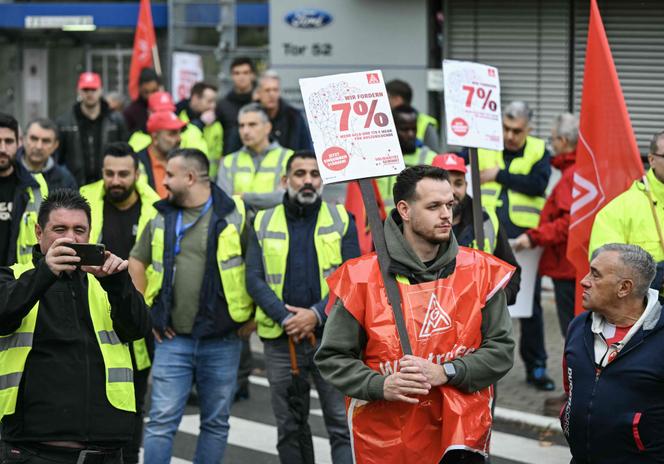Europe has fallen further behind economically and technologically, and the governments of the European Union’s main driving forces are politically shaky.
Subscribers only

A weakened Europe is anxiously awaiting the outcome of the American elections held on Tuesday, November 5. Under Joe Biden’s presidency, the economic gap between Europe and the United States has widened. Mario Draghi, the former president of the European Central Bank (2011-2019), warned on September 9, as he presented his report on Europe’s competitiveness, that if the European Union does not invest massively in clean technologies and digital technology, it is condemned to a “slow agony.”
If the EU is to effectively address this “existential challenge,” as he described it, Draghi says that the EU needs to invest an additional €800 billion a year. That amount is three times more than the Marshall Plan allocated for the reconstruction of Europe after the Second World War. However, such a plan can only be achieved if the 27 member states demonstrate a common will and work together. The challenge lies in how to accomplish it at a time when political paralysis has taken hold of the eurozone’s two driving forces, Germany and France.
In Germany, Social Democrat Olaf Scholz’s coalition is on the verge of collapse. Scholz has never succeeded in imposing his leadership in Europe and the government is struggling to agree on the 2025 budget. Additionally, there is growing pressure from employers to relax the constitutional principle of the “debt brake” in order to enhance public investment. The weakness of Scholz’s tripartite coalition has led to the possibility of early parliamentary elections, before the scheduled date of September 28, 2025. Given Germany’s significant economic influence, which alone accounts for a quarter of the Eurozone’s gross domestic product and facing the prospect of a recession for the second year running, such political uncertainty is a weakening factor for the EU as a whole.
In France, the situation is no more stable. The dissolution of the Assemblée Nationale in June led to the formation of a government that already appears to be in agony before it has even begun to act. With no majority, Prime Minister Michel Barnier has no real room for maneuver, as demonstrated by the chaotic budgetary debate in the Assemblée Nationale, set against a backdrop of spiraling public finances. While the impossibility of another dissolution until June 2025 guarantees a temporary status quo, the consequences are already being felt. The hasty and misunderstood call for snap legislative elections has considerably reduced Emmanuel Macron’s capacity for diplomatic influence, particularly on the European stage – a role he had actively sought when he took office in 2017.
You have 46.65% of this article left to read. The rest is for subscribers only.
Vous pouvez lire Le Monde sur un seul appareil à la fois
Ce message s’affichera sur l’autre appareil.
-
Parce qu’une autre personne (ou vous) est en train de lire Le Monde avec ce compte sur un autre appareil.
Vous ne pouvez lire Le Monde que sur un seul appareil à la fois (ordinateur, téléphone ou tablette).
-
Comment ne plus voir ce message ?
En cliquant sur « » et en vous assurant que vous êtes la seule personne à consulter Le Monde avec ce compte.
-
Que se passera-t-il si vous continuez à lire ici ?
Ce message s’affichera sur l’autre appareil. Ce dernier restera connecté avec ce compte.
-
Y a-t-il d’autres limites ?
Non. Vous pouvez vous connecter avec votre compte sur autant d’appareils que vous le souhaitez, mais en les utilisant à des moments différents.
-
Vous ignorez qui est l’autre personne ?
Nous vous conseillons de modifier votre mot de passe.
Lecture restreinte
Votre abonnement n’autorise pas la lecture de cet article
Pour plus d’informations, merci de contacter notre service commercial.








